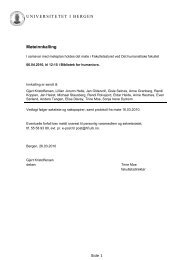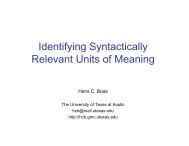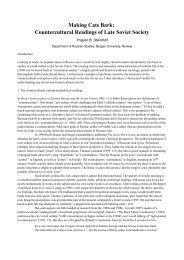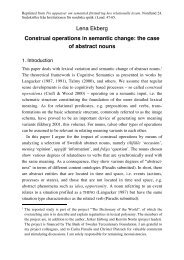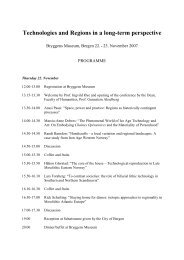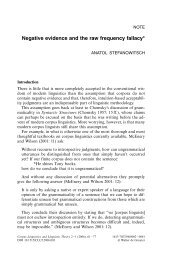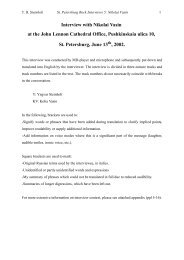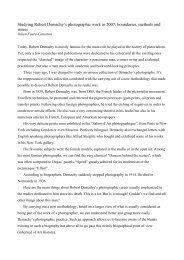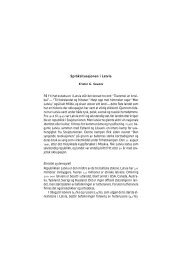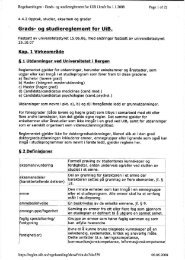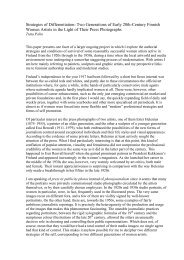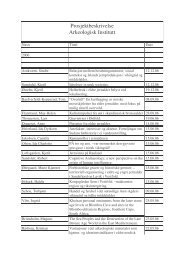THE BOOK OF POEMS IN TWENTIETH-CENTURY ... - TopReferat
THE BOOK OF POEMS IN TWENTIETH-CENTURY ... - TopReferat
THE BOOK OF POEMS IN TWENTIETH-CENTURY ... - TopReferat
Create successful ePaper yourself
Turn your PDF publications into a flip-book with our unique Google optimized e-Paper software.
uncorrupted word of God, but rather that word filtered through her all too human<br />
experience, mired in flesh. 205<br />
Shvarts's metapoetic comments become explicit in the ninth epigraph which cites<br />
Olga Sedakova: Поэт есть тот, кто хочет то, что все/Хотят хотеть... This epigraph<br />
supports Shvarts's notion of the poet as a seeker of truth and meaning. The poet is not a<br />
prophet granted truth by default—she is privileged over the non-poet only in her ability to<br />
desire and to seek truth. The final epigraph is taken from the end of the religious poet<br />
Igor Burikhin's long poem "Февральский демон," which concerns itself with the same<br />
struggle between flesh and the spirit that will torment Lavinia. The lines Shvarts cites<br />
provide a concluding call to God: И все же силою любви/с гнездом подняться от<br />
земли./Сам Господи, благослови!.. (And with that same power of love/rise up from the<br />
earth with the nest./The very Lord, give your blessing!) With this request for a<br />
benediction, Shvarts embarks on Lavinia's spiritual journey toward God.<br />
While the epigraphs at first seem like a puzzling array of unrelated thoughts, they<br />
ultimately guide us into the book that follows. In their diversity of sources they support<br />
the ecumenical mission set out in Paul's "circumcision of the heart"; several address the<br />
central theme of the role of the poet and poetic work; the Rilke and Corinthians epigraphs<br />
are tied by their association of madness and wisdom; the Rilke and Chuang Tzu citations<br />
are connected through the technique of ellipsis. The epigraphs resonate not only with<br />
each other and with elements of the title, but also with the subsequent poems. Jonah will<br />
reemerge in Lavinia's poem, "Левиафан"; themes and images related to madness and<br />
205 Mironov's epigraph is hinted at in the seventy-fifth poem of the book, "Сатори," which will be<br />
discussed later in the chapter.<br />
153



